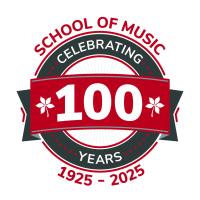Musicology Careers
What can you do with a graduate degree in Musicology?
Musicology students at Ohio State engage in interdisciplinary inquiry into music in its social and historical contexts, integrating perspectives from ethnomusicology, historical musicology, and other related areas of study.
Our students pursue a variety of careers, and our program emphasizes the importance of planning one’s professional development. We prepare students for work both inside and outside the professoriate. Our graduates are working in digital humanities, music therapy, philanthropy, arts administration, library science, international education, student life and advising, music performance, K-12 education, data science, and music journalism. And they are working in higher education, with tenure-track positions at Cornell, Duke, Butler, Vanderbilt, Millikin, and Miami Universities, as well as at the University of Maryland, the University of North Carolina–Greensboro, the University of Wisconsin, Istanbul Technical University, and Hong Kong Baptist University; and visiting, postdoctoral, or lecturer roles at Yale University, Binghamton University, Sophia University and Musashi University (Tokyo), the University of Hartford, and more.
Browse the extraordinary career paths of our graduate alumni below.
How are Musicology students supported in their work toward careers of their choice?
Student research is assisted by grants from our program, the College of Arts and Sciences, the Council of Graduate Students, and on-campus research centers. The ability to develop a budget and apply for a grant is an important outcome of our program. Musicology students have successfully competed for Fulbright-Hays, AMS-50, and other external fellowships.
Advisors in Musicology provide individualized advice and support. Our degree programs are flexible: each student’s program will be tailored to that student’s interests. Some have pursued concurrent degrees in music performance, law, or other disciplines.
Skill-building is available within and outside the formal curriculum. Many students complete Graduate Interdisciplinary Specializations in a complementary field to enhance their career preparation, or attend “boot camps” at the Erdős Institute. Ohio State offers a paid internship program where graduate students can gain hands-on experience in a Central Ohio arts organization.
Students and early-career alumni have access to 1:1 career coaching through Arts and Sciences Career Success, as well as workshops through Beyond the Professoriate/Beyond Grad School and networking through AlumniFire, the Ohio State Alumni Association career network. The Career Accelerator Fund supports students who want to pursue experiential learning or other forms of professional development for work outside the professoriate.
2020–2025

Robert Dahlberg-Sears is a Part-Time Lecturer at Sophia University and Musashi University, and Adjunct Professor at the Center for International Educational Exchange in Tokyo, Japan. He also serves as Director of Communications for the Modern Japan History Association. He earned his PhD in Ethnomusicology in 2025 with a graduate interdisciplinary specialization in Folklore. His research focused on how punk/alternative musics and culture are used, coded, and commodified in Japan—essentially, "what does it mean to be 'punk' in Japan?" The people and research methods he encountered as a researcher now inform his teaching of highly diverse international students. He credits his pedagogical models at Ohio State for making this possible.
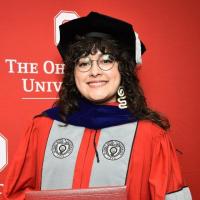
Elena Cruz-Lopez works as the Communications and Customer Experience Representative at The Loft Violin Shop. She also teaches violin and piano at Musicologie and organizes Tempo: Music & Arts Camp. At Loft, she researches and writes social media content, including educational posts on composers, string musicians, and products for string players. Cruz-Lopez earned her PhD in Musicology in 2024. Her dissertation explored how Motown Records' marketing strategies shaped fans' recollections of 1960s music and influenced the legacy of Motown in popular music history. Her research helped her prepare for Tempo’s fundraising and outreach efforts, as did her work with the Council of Graduate Students’ Arts & Culture Subcommittee.
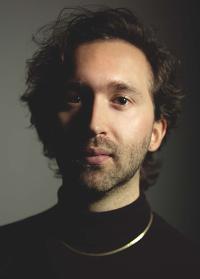
Jacob Kopcienski is Assistant Professor of Musicology in the Hayes School of Music and Affiliate Faculty with the Center for Appalachian Studies at Appalachian State University. He earned his PhD in Musicology in 2023, with a dissertation documenting LGBTQ music, performance, cultural organizing, and communities across Appalachia, the Midwest, and the South. They credit OSU’s program with providing hands-on pedagogical training that now informs their undergraduate teaching. The fieldwork and organizational skills they developed through their dissertation research also prepared them to coordinate a university public humanities program, connect with community stakeholders, write grants, and organize public events.

Wonseok Lee is a Postdoctoral Associate in East Asian Studies, a Lecturer in Music, and serves on the Council on East Asian Studies at the MacMillan Center for the International and Area Studies at Yale University. Before arriving at Yale, he taught as a Lecturer in Korean Studies at Washington University in St. Louis, and at Bowling Green State University teaching “Introduction to Popular Culture.” Lee completed his PhD in 2023 in Musicology. His dissertation examined K-pop as a genre, not as a fixed concept bound to national identity, but instead as a signifier that operates in a global sphere. He found that the “K” of K-pop can take on multiple meanings and identities.
Katelin Webster completed her PhD in Musicology in 2023 with a dissertation on intercultural music-making and Syrian refugee integration in northern Germany. Her dissertation was supported by an AMS-50 Fellowship. She is the Philanthropy Coordinator at the Refugee Education Center in Grand Rapids, focusing on funding support, research, and grant writing. She also coordinated a drum workshop for the center’s after-school program. Webster credits her PhD training in data analysis and project management with enhancing the center's fundraising strategy. By writing grants, analyzing donor trends, and organizing events, she supports sustainable growth and ensures access to educational and resource navigation services for refugee families.
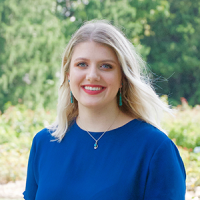
Phoebe Hughes is a Lecturer in Musicology at Binghamton University in Binghamton, New York. She earned a PhD in Musicology in 2022 with a graduate interdisciplinary specialization in Women’s, Gender and Sexuality Studies. Her dissertation research focused on women in country music from the 1960s to the present. Hughes analyzed five different case studies of female country artists over a seventy-year period who have all worked at the edges of country music. She found that they used specific strategies to build careers, whether through stylistic choices within the format, bringing new audiences to the genre, or by creating a space for themselves outside of the genre.

Sophia Enriquez became an Assistant Professor of Music at Duke University after graduating in 2021 with a PhD in Musicology. Her dissertation research explored Latinx music, migration, and belonging in Appalachia. Enriquez studied how Latinx creative practices are increasingly visible and influential as Latinx Appalachians find meaningful ways to engage and blend Latinx and Appalachian musical traditions together. Her dissertation project developed her skills in participant-observation-based ethnographic research as well as archival methods, The result was an analysis that contributes to the richly interdisciplinary field of Appalachian studies.

Beth Owen earned her PhD in Music History from The Ohio State University in 2021. She works as an instructor of flute, piano, recorder, and Baroque flute at Southport Studios. With over 50 years of teaching experience, she has received several certifications from the Music Teachers National Association and the Ohio Music Teachers Association for her work. Owen’s dissertation focused on the interplay of orality and literacy in Hebrew Torah cantillation, considering how one informs the other throughout the long history of diaspora and Jewish liturgical cantillations.
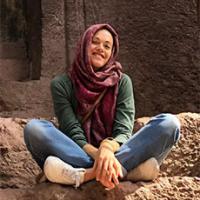
Sarah Bishop provides music therapy and directs the activities program at a mental health rehabilitation center in California. She also offers workshops on music therapy for musicians and psychology students in Ethiopia. With a PhD in Musicology earned in 2020, Bishop researched the relationship between music, ethnicity, and violence in the Gambella region in Ethiopia. The project focused on two ethnic groups (Anywaa and Nuer) and how local music-making and interpretive frameworks of listening reflect, shape, and produce ethnicity within these contexts. Other research interests include music and violence, Protestant Christian music and movements across Africa, music and authoritarianism, and music and trauma.
Adam Buffington is a performer, composer, and founder of Mumbling Eye Record Label. He completed his PhD in Musicology in 2020 with a focus on experimentalism and transnationalism in twentieth-century Reykjavik, Iceland. Informed by archival and ethnographic research, and engaged with art historians, musicologists, and cultural anthropologists, his dissertation interrogated dominant narratives about new music through three case studies involving Icelandic and non-Icelandic artists. Buffington says his graduate training gave him writing and organizational skills that he uses often in running the record label and writing the liner notes for releases.
2017–2019
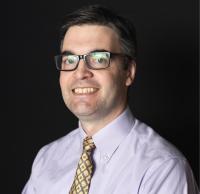
Patrick Bergin serves as a K-8 music teacher at the St. Austin School in St. Louis, Missouri. He earned a PhD in Musicology in 2019 and uses his graduate training to teach students not only how to sing and read music, but also to understand music’s histories and contexts. His dissertation research examined a repertoire of medieval European music, the offices for the two feasts of Saint Dominic. Bergin studied the overall contexts and the proper chants of the offices while offering commentaries on each item.

Matthew Campbell is the Assistant Program Director for the Performance Studies in the School of Performance, Visualization and Fine Arts at Texas A&M University. Previously on staff there as a lecturer, he taught courses in ethnomusicology, popular music studies, and American history. Campbell completed his PhD in Musicology in 2019. His dissertation examined “audio letters” during the deployment of US soldiers in the Vietnam War. Examining the impact of war and its sustained separations, the research considered the development of technologies that allow people to extend and manipulate aspects of their person beyond their own bodies.
Elizabeth Kirkendoll graduated in 2019 with a PhD in Musicology. She serves as the Assistant Director of the Academic Resource Center in the College of Fine Arts at Texas Christian University. She states that her time management, critical thinking, and student advocacy skills are the result of her studies at Ohio State. These skills have enabled her to enter career dedicated to student success and wellness. Kirkendoll’s dissertation research analyzed popular music in postmillennial romantic comedies.
Hye-jung "Morgan" Park works as a Business Systems Analyst II and AI Machine Learning Practitioner for the Dallas Independent School District. Upon completing her PhD in Musicology in 2019, she went on to receive an MS in Computer Science from Tufts University. Her research at Ohio State, supported by an AMS-50 Dissertation Fellowship, explored the circulation of American music and musical “Americanization” in East Asia. Her diverse experiences in engineering and music have given her a unique blend of technical expertise and business insight that enables her to tackle complex real-world problems and drive innovative solutions.
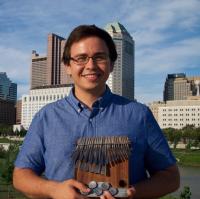
James Lindroth teaches percussion, guitar, and piano at the Chambers Music Studio in Columbus Ohio. He also is a bodhran (Irish percussion instrument) instructor at Columbus Comhaltas and plays the bodhran and mbira (African thumb piano) for gigs with local Columbus groups. Lindroth earned his MA in Musicology in 2018, having studied Zimbabwean Mbira music and modern spirituality in the Western United States.
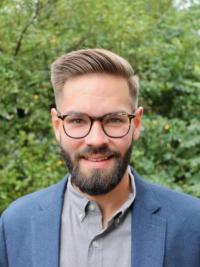
Austin McCabe-Juhnke teaches as an Assistant Professor of Teaching in Musicology at the Ohio State University. He graduated from Ohio State in 2018 with a PhD in Musicology. His dissertation research focused on music and the Mennonite ethnic imagination. It examined the connections between musical aesthetics and processes of ethnoracial identification in the music-making practices of American Mennonites during the twentieth century.

Peter Moeller works as a Data Analyst at AllianceRx, a subsidiary of Walgreens Pharmacy and performs in local Chicago musical theatre productions on the side. He earned his MA in musicology in 2018 with a thesis entitled “Variety within unity: sanctus sanctorum exultatio.” His research analyzed the use of tropes within the Roman liturgy used by Frankish singers as a creative response to the imposition of Roman Catholic rituals. Moeller says his graduate training helps him to ask questions, approach, analyze, and then synthesize a large amount of data into a story that can be presented to non-specialists in a way that is engaging and understandable.

Dana Plank is a Lecturer in Music History at the University of Hartford.
In 2018 she earned her PhD in Musicology with a research focus on representations of disability in 8- and 16-bit video game soundscapes. Plank’s dissertation explored sonic signifiers of injury, disease, and mental illness within these game soundscapes and considered how they reinforce ableist ideals and promote unrealistic views of idealized normative body and mind.
Plank also streams a program entitled "Kudomusicology: a Ludomusicology literature review" on Twitch.

Garrett Brown works as an associate in the Corporate & Finance practice at Arnall Golden Gregory LLP where he advises clients on tax related issues. He received his Master of Arts degree in Musicology in 2017 before going on to complete his Juris Doctor at the University of Virginia School of Law. His master’s thesis blended his interests in music and the political as it examined the history of the campaign song in presidential elections in the United States, finding changes in songs’ function as a result of the changing American electorate and advancing technology.
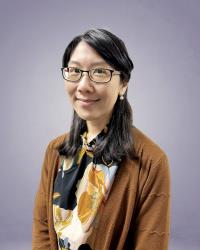
Hsiang-Ning Kung graduated in 2017 with a PhD in Musicology. She currently teaches as an Assistant Professor at Dallas International University’s Center for Excellence in World Arts. Kung’s dissertation revisited Western contemporary theories of pulse and meter through an embodied perspective, holding that both pulse and meter are cognitive constructs based on the internal and external interactions being either universally perceived or culturally dependent.

Yun Wang is a Master’s student in Computer and Information Technology at the University of Pennsylvania. She completed a PhD in musicology at The Ohio State University in 2017. Her graduate research in musicology investigated how pitch contours affect linguistic processing to help learn how musical speech surrogates function.

Steven Wilcer is a Library Assistant III at the University of Northern Iowa. He completed his Master of Arts in Musicology at The Ohio State University in 2017. In the master’s program, he pursued research on John Philip Sousa’s lesser-known descriptive works and instrumental suites, highlighting his efforts to bridge "highbrow" and "lowbrow" musical traditions in the late nineteenth- and early twentieth-century United States.
2014–2016
Norman (Michael) Goecke is the founder of Mucus-Free Life LLC, a health and wellness organization dedicated to educating the world about the Mucusless Diet Healing System. He also performs as a jazz trombonist with Prof. Spira & Brother Air: Fire Music Project. He graduated in 2016 with a PhD in Musicology, specializing in jazz studies. His dissertation research considered what is at stake in jazz education and described some of the principal formal and non-formal environments in which jazz music is learned today. Analyzing elements of jazz pedagogy, Goecke advocated for the revitalization and reorientation of jazz education and its cultural spaces.

Katherine Leo teaches at Millikin University in Illinois as an Assistant Professor of Music. She graduated with a PhD in Musicology in 2016, focusing on the history of copyright litigation. Leo’s dissertation research examined court records and judicial opinions on prominent music-related cases chronologically from the mid-nineteenth century through recent lawsuits in 2014. Her work looked at the role of the musical expert in the legal context and the essential roles they have played.

Olivia Wikle graduated in 2016 with a Master of Arts in Musicology. Her thesis examined Ann Radcliffe’s incorporation of music in her novel Mysteries of Udolpho, particularly considering Antonio Sacchini’s Armida and George Frederic Handel’s Israel in Egypt as influences. Wikle serves as the Head of Digital Scholarship and Initiatives at Iowa State University. She previously was the Co-Director of the Center for Digital Inquiry and Learning and lead the Digital Initiatives Library at the University of Idaho.
Douglas Anthony graduated in 2015 with a PhD in Musicology. He is the founder of Walk in Two Worlds Ministries. This organization circulates new, local songs in the developing world as part of a leadership development curriculum designed for oral-preference learners. They also help ministries all around the globe engage with local culture in ways that initiate exponential transformation. Anthony is also an Adjunct Professor of Music and Ethnomusicology at Liberty Online University. His PhD dissertation research studied how tactical performances enable survival and religious piety for marginalized Christians in Odisha, India.
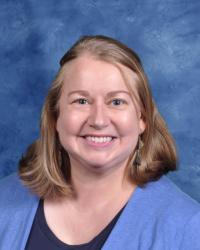
Emily Erken earned her PhD in Musicology in 2015. Her dissertation examined how the reception and adaptation of Eugene Onegin across literature, music, theater, and dance have served as a medium for the Russian intelligentsia to negotiate evolving concepts of morality, identity, and national values from the nineteenth century to the present. Erken currently teaches English at Purcell Marian High School. She notes that her research focused on interpretations of musical and literary works: she asks her high school students to do similar interpretive work on a smaller scale. The skills she learned in her graduate study also serve her in helping high school students undertake the International Baccalaureate program.
Alison Furlong is a Project Manager and Coordinator for the Instructional and Research IT Support Services in the College of Arts and Sciences at Ohio State University. She earned her PhD in Musicology in 2015. During her graduate program, she researched how sound was manifested in three particular East Berlin churches—the Samariterkirche, in Friedrichshain, the Erloserkirche, in Lichtenberg, and the Zionskirche, in Prenzlauer Berg— and the ways in which people within those churches engaged in public action through sound in the 1980s. Though Furlong works outside the field of musicology, her graduate degree has given her the ability to translate ideas between academic faculty members and technology specialists to complete digital humanities projects.

Thomas Beardslee earned his PhD in Ethnomusicology in 2014. He works as a freelance guitar instructor of multiple styles and levels and tours as a gigging musician in Belgium and the rest of Europe. Beardslee’s dissertation argued that safeguarding of traditions, with a focus in Morocco, is not the best intervention for cultural preservation and instead proposed alternatives based on UNESCO’s Intangible Cultural Heritage program.

Max Bissler is an Education Specialist in neurodiagnostic technology at Cincinnati Children’s Hospital Medical Center and President of the Ohio Neurodiagnostic Society. He previously worked in clinical trials for epileptic patients. Bissler earned the Master of Arts in Musicology in 2014 with a thesis examining moments of spatial, historical, and identity transformations through the performance of Aboriginal community radio productions in Vancouver, BC. This research highlighted points at which space is marked as indigenous and colonial through physical movement and as well as discourse. Training in fieldwork and ethnographic methods prepared Bissler to think carefully about quality improvement and patient safety, with a broad perspective on who counts as a "stakeholder" in medical settings.
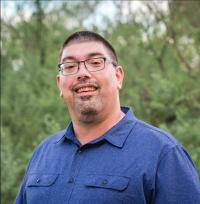
Abel Stewart is the Director of Contemporary Worship and Deacon in Residence at Northern Hills United Methodist Church in San Antonio, Texas. Stewart graduated in 2014 with an MA in Musicology. His thesis research explored how undocumented migrants within the United States use music listening in public spaces as a way of creating positions of security. He argued that music and genre-normative modes of listening form a fundamental part of the social architecture of public space, and regional Mexican music forms part of the social architecture of Mexican grocery stores as a culturally "safe" environment for migrants.
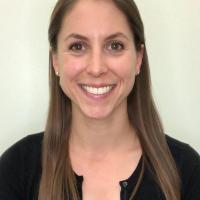
Rachel Wishkoski works as the Head of Instruction and Assessment in the University Library at Santa Clara University. She previously worked as an Associate Librarian in the Learning and Engagement Services Unit of the Utah State University Libraries. Wishkoski earned her MA in Musicology in 2014 with a thesis titled “To become something new yet familiar”: Remembering, Moving, and Re-membering in Seattle Buddhist Church’s Bon Odori Festival.” Her thesis examined the embodied ways of remembering the past and the performative process of re-membering community in the present through participatory dancing in the Bon Odori festival.
2012–2013

Matthew Bester is the Director of Music at St. Mark’s Episcopal Church, the Founder/Artistic Director of Fior Angelica, the Associate Conductor of Lancaster Chorale, and the Vice President of the Board of Trustees for Friends of Early Music, Inc. He graduated in 2013 with a PhD in Musicology. His dissertation focused on Pietro Aron’s early works, providing a translation and commentary on Book I of the Libri tres de institutione harmonica. Bester assessed and contextualized Aron’s perspective on plainsong, adding to the existing scholarship on his influential treatises on polyphony.
Stephanie Frakes is the Grants Facilitator for the Major Projects Office at the University of Manitoba. She earned her PhD in Musicology in 2013 with a dissertation on Chopin’s Cantabile in context. Her research explored the influence of cantabile in French music, particularly its integration into early nineteenth-century piano pedagogy, and its profound impact on Frédéric Chopin's music. By analyzing Chopin's cantabile markings, the study traced his stylistic evolution and revealed how his pianistic idiom combined French and Italian influences, refining early-nineteenth-century performance practice and highlighting his unique approach to melody and improvisation.

Zhichun Lin is the Assistant Director of Career Counseling for Graduate Students at Brown University. She has worked in other career advising roles at Northeastern University and the University of Massachusetts Boston. Lin graduated in 2013 with a PhD in Ethnomusicology from The Ohio State University. Her dissertation examined the relationship between women and music in contemporary Chinese film, the early post-Mao melodrama, and the Fourth, Fifth, and Sixth Generation films since the 1980s. Lin credits her graduate program for her ability to navigate ambiguity. She honed her critical thinking and developed analytical, problem-solving, and communication skills that allow her to approach topics from different perspectives and broader contexts.
Deborah Ruhl graduated in 2013 with a PhD in Musicology. Her dissertation examined William Gadsby as a pivotal figure in the history of nineteenth-century English Particular Baptist churches, highlighting his role as a defender of high Calvinistic orthodoxy and innovator of experimental hymnody. Ruhl sings as a Professional Core (Soprano) for the Virginia Symphony Orchestra Chorus and also works as a Secretary for Redeemer Church.
Sabine Thalheim teaches as Adjunct Faculty and works as the Education Faculty Secretary at Mount Vernon Nazarene University. She completed her MA in Musicology in 2013. Her thesis argued for a reconsideration of musical theater as an important and revealing genre of entertainment that is connected to politics and history of the society from which it emerged. Thalheim focused on Rodgers and Hammerstein’s “Flower Drum Song” as a case study.
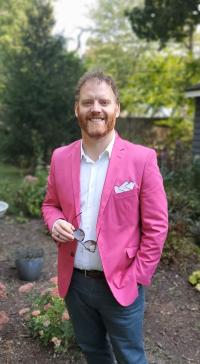
Nicholas Johnson graduated in 2012 with a PhD in Musicology. He is the Coordinator of Musicology, Professor of Musicology, and Associate Director of Graduate Studies at Butler University. Johnson’s dissertation research centered on the intellectual exchanges among scientific, magical, and musical practitioners at the court of Holy Roman Emperor Rudolf II in Prague between 1580 and 1612. He contended that Rudolf’s composers were not only aware of hermetic philosophy, but at times actively incorporated specific elements into their musical works.
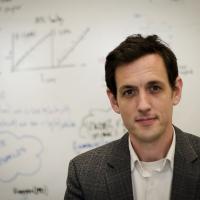
Niall Klyn earned his MA in Cognitive Ethnomusicology in 2012 before continuing to complete a PhD in Psychoacoustics at The Ohio State University. Klyn works as a Senior Data Scientist at Essentia Health, having previous experience as a postdoctoral researcher at Northwestern University studying public health and the epidemiology of hearing. Klyn’s master’s thesis investigated how working memory processes vocal and instrumental rhythms differently, using recognition memory experiments with voice and clapstick rhythms from Dyirbal field recordings.

James Naumann is an Agency Attorney for the NYC Department of Education and an artistic staff pianist, recital coach, and vocal coach in New York City. He previously worked as the Secretary and Judiciary Committee Member for the LGBT Bar Association of Greater New York. Nauman earned his MA in Musicology from The Ohio State University in 2012 and his Doctor of Law at Pace University. His research examined Robert Schumann’s Humoreske (Op. 20) within the context of Romantic irony and shifting compositional aesthetics.
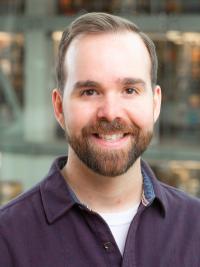
Jarod Ogier is the Public Services Coordinator for the Research Commons of the University Libraries at The Ohio State University. He also serves as the Director of Music for Worthington United Methodist Church. Ogier earned his MA in Ethnomusicology in 2012. His thesis explored the role of the Federal Music Project (FMP) within the broader context of Federal Project Number One, focusing on its limited engagement with American folk music. His other research interests include ensemble music making and building generational pathways for musical participation in the church.
Joseph Panzner graduated in 2012 with a PhD in Musicology. He completed training in the field of psychology before going into the social work field. Panzner’s dissertation was titled “The process that is the world: Cage/Deleuze/events/performances.” His research explored John Cage's views on musical performance and its potential to foster a more just, non-hierarchical society, examining how his experiments with chance operations and indeterminate scores challenge conventional performance analysis. By aligning Cage with the philosophy of Gilles Deleuze, the research highlighted how both thinkers prioritize process over product, resistance to authority, and the ethical demands placed on performers, offering a framework for understanding music's role in a complex, ever-changing world.
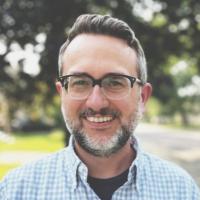
Nicholas Poss works as the Director of Music at the St. James Greater Parish and is a Band Director at Crestview Academy in Eau Claire, Wisconsin. He previously worked as Seminar Planner for HalfMoon Education. Poss graduated in 2012 with a PhD in Ethnomusicology. Using an interdisciplinary approach to ethnography, his dissertation research focused on Hmong music and language cognition.
2008–2011
Billie Eaves is a Piano and Woodwind Instructor at Music Royale. They previously worked as a Compliance Coordinator for the Hondros College of Business and as a Ticketing Associate for the Columbus Association for the Performing Arts. Eaves graduated in 2011 with a MA in Musicology and a MM in Oboe Performance. Their thesis research examined Erik Satie’s Trois Gymnopédies as a blend of high and low musical culture, initially combining modernist and popular elements to appeal to both artistic and bourgeois audiences.
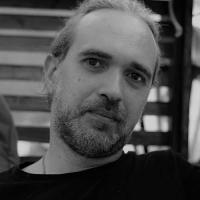
Ștefan Firca is a Lecturer at the National University of Music in Bucharest. He graduated in 2011 with a PhD in Musicology, with a dissertation that focused on the carnivalesque aspects of late 1960s psychedelic culture. His research offered a “thick description” (Geertz) of this music as part of a larger cultural and countercultural imagination, and considered the semiotics of metaphorical representation.

Jane Harrison is Professor of Musicology at Istanbul Technical University in Turkey. She earned her PhD in Musicology in 2011 with research that focused on the music of Debussy in early twentieth-century France. Her dissertation traced the development between 1890 and 1930 of the French musical trend referred to as debussyme, a cohesive collection of techniques with aesthetic roots in contemporaneous philosophy. Harrison says the opportunity to teach a variety of different classes during her degree was helpful in preparing her for her current work, which prioritizes teaching over research.

Tsun-Hui Hung is a Chinese Language Instructor at Hawaii Pacific University and offers online erhu lessons for beginners. She earned her PhD in Ethnomusicology in 2011 with a focus on vocal and instrumental rhythm processing. Hung’s dissertation explored the cognitive processing differences between vocal and instrumental rhythms. She used behavioral experiments and brain activation measured by fMRI to investigate how humans respond to these two types of rhythms.
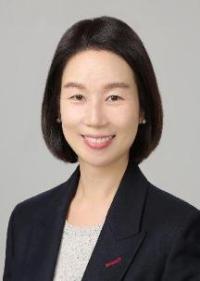
Soojin Kim is Assistant Professor of Musicology in the School of Music of the Korea National University of Arts. Kim graduated in 2011 with a PhD in Ethnomusicology. Her research studied music cultures and diaspora by examining the Korean genre of p’ungmul as a site of continuous and dynamic socio-political exchange between the music's Korean homeland and its host society in the United States. Kim gained valuable fieldwork and grant writing skills during her graduate program, which are crucial to her current research. She also learned how to support and assist students from diverse cultural backgrounds, enabling her to develop concrete strategies for helping international students and those with different cultural identities. She notes that her students at Korea National University of Arts are motivated and inspired by the experiences from OSU that she frequently shares with them.
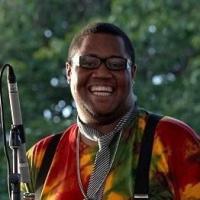
Ken Archer graduated in 2009 with a PhD in Ethnomusicology. He works as a Substitute Teacher in New Jersey and has prior experience teaching at Queen’s Royal College in Trinidad and Tobago. Archer’s dissertation, “The Brooklyn Carnival: A Site for Diasporic Consolidation,” examined the ways in which sectors of the Caribbean American community in Brooklyn used performance media such as music, dance, and masking to mediate uncertainties presented by their migration to the United States. Archer argued that the Brooklyn Carnival functioned as a site in which some measure of cultural conservatism on the part of the Caribbean community could be observed.
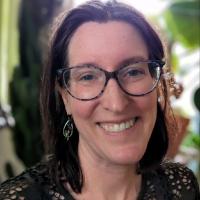
Maureen Pritchard is a freelance Educational Consultant with Chainlink Strategies and was previously a Case Manager for North Central Mental Health Services. Her work leverages her academic expertise for the benefit of organization seeking to serve the mental health needs of culturally specific populations, especially in relation to arts-based programming. Pritchard completed her MA in Ethnomusicology in 2009. Her thesis research explored the practice of koshok, a form of lament in Kyrgyz society, which manifests in three types: a vocal lament performed by women, an instrumental performance spreading news of death, and a male singer’s vocal performance for esteemed figures. Through three years of ethnographic research in the Kyrgyz Republic, her work connected koshok to myth and emotion, showing how its performance and reception are influenced by social context and individual involvement.

Lindsay Bernhagen is a Lecturer in Community and Organizational Leadership and the Educational Sustainability Program at the University of Wisconsin Stevens Point. She also works as a freelance Diversity, Equity, and Inclusion Consultant with prior experience as a Senior Learning Strategist at Torch. In 2008, Bernhagen completed her MA in Ethnomusicology and Women’s, Gender, and Sexuality Studies; then earned her PhD in Comparative Studies from The Ohio State University in 2013. Her master’s thesis focused on the creation and mediation of political texts in virtual spaces with a particular focus on post-9/11 anti-war music. Bernhagen credits her time at Ohio State with fostering her intellectual flexibility through her interdisciplinary experience. Her training taught her to see broad connections that are not obvious to other people.
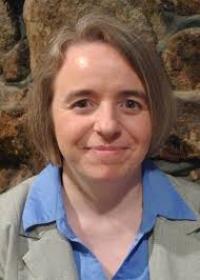
Beth Szczepanski is a Social Studies and English Language Arts Teacher at the Cordero Education Center for Adjudicated Youth in Portland, OR, with prior teaching experience as a Visiting Professor at Lewis & Clark College and Whitman College. She graduated in 2008 with a PhD in Ethnomusicology. Szczepanski’s dissertation examined how sheng guan wind and percussion music retained elements of tradition vital to its identity as a Buddhist ritual practice, yet at the same time absorbed modern elements that allowed it to survive in the context of modern China.
Questions?
Alumni — if your bio isn’t here, and you’d like to be featured, email Danielle Fosler-Lussier.
Learn more about Musicology at Ohio State.
